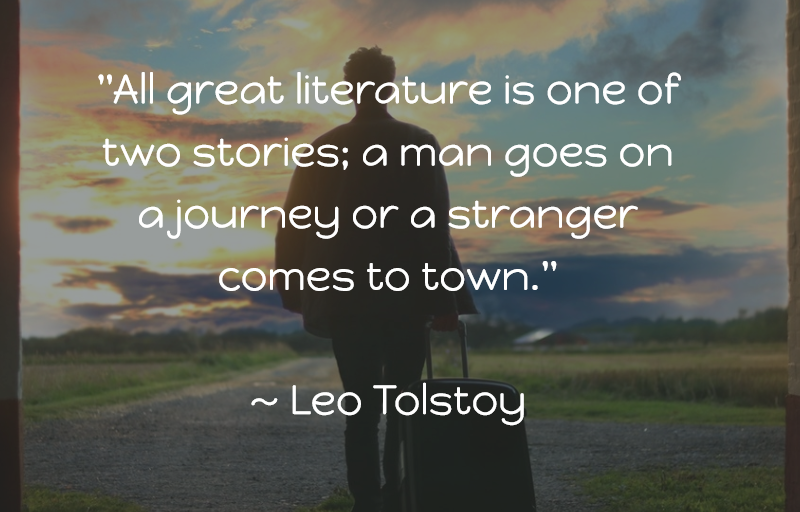From One Writer to Another: A Short “How To” on Writing Fiction by @wendygarfinkle
Do you have an idea for a great story? Does something inside push you to string letters together in complete sentences that end up filling multiple pages? Do you feel as if you’ll burst if you don’t stop RIGHT THIS MINUTE and record those scenes and that dialogue swirling round and round in your head?
Welcome to my world, and the world of so many others like me. Welcome to the world of WRITING. What do I do NOW? you may ask. I’m so glad you did. I have answers for you. In this post, I’ll address writing historical (specifically, medieval) and fantasy fiction, as they are the setting/time period/theme of my current WIP (Work in Progress).
While writing fiction can be as simple as sitting down and setting pen or pencil to paper (or fingers to computer keyboard – whichever your preference), it isn’t always so. It surely wasn’t that simple for me. Oh, the words may flood your imagination and before you know it, you’ve written a complete chapter. Good for you! I sincerely hope it’s that easy for you. Quite often, though, research is necessary, even if it’s just looking up the meaning and best use of a word or phrase.
Research
If like me you write historical fiction, then your setting (geographical) may be a place that exists — or did at one time exist in the real world. If so, you’ll need to be sure you know a few things either before you begin writing the story or at some point before you’ve finished your first draft:
- Where in relation to the rest of the world that place exists (or did exist, if it doesn’t anymore). Part of my book takes place in medieval Silesia, Poland. While it still exists, the borders have changed over the centuries and today it’s divided between Poland, Germany and Czechoslovakia.
- Topography – mountainous, plains, desert, etc.
- Climate(s)
- Culture(s) – how the natives interact with one another and with foreigners/visitors.
- Cuisine
- System of exchange – bartering, coin money, etc.
- Native/national costume/style of clothing (if any). I say “if any,” because in America for example we don’t have any one national style of clothing.
- Weaponry, soldiers/armies, defense/offense, justice system.
- Sexuality – mainly discrimination between the sexes, expectations and perceptions that separated the genders, location/national traditions/norms for single persons, married persons, etc.
- Language(s), dialects
- Medicine/healing
- Travel between cities, towns, villages, countries
This is by no means an exhaustive list, but it’s a good place to start. The necessity for research is one reason why some books and series take years to write and publish; all of the research that must take place before pen is even set to paper, research that continues while writing, and then the redrafting, polishing, editing and proofreading. If you’re going to spend the time and energy writing a story with the intention of publishing, then you want to be sure it’s your best work. Every time. Your writing skills may improve with each successive book – in fact, they almost certainly will improve. That doesn’t mean your earlier works weren’t your best; they were your best at that time.
Historical Fiction
What will you write about? Will you write a coming-of-age tale? Will you write a swashbuckling adventure full of pirates and damsels in distress? Whatever you choose to write about, you’ll probably discover the truth of one of my favorite quotes of all time about writing. Leo Tolstoy said, “All great literature is one of two stories; a man goes on a journey or a stranger comes to town.” The first time I read this quote, I took it as a challenge – a challenge to find a book that WASN’T about one of those two stories. So far, every story I’ve read (literally thousands) has supported this statement.
All fiction is based on one of these two ideas, and you build upon them. Even if the story doesn’t begin with a journey or an arrival, one of those is still present. While, as Patricia C. Wrede points out, a hero going on a journey or a stranger coming to town aren’t plots per say, they ARE precipitating incidents that introduce the plot; they are where the plot begins. They are the foundation upon which all fiction is built.
Fantasy
What about fantasy? On one hand, writing fantasy can be easy – it’s often make-believe, after all, and subject only to the limits of each writer’s imagination and motivation. On the other hand, it needs to be believable. And if your fantasy is set in the real world – sort of a small step off the beaten path – then you still need to research the setting, time period, etc. This is what I did in my book, SERPENT ON A CROSS, and its work-in-progress sequel, VEIL OF MENACE. I combined real-world historical events and places with fantasy, mythology and Jewish mysticism/esotericism. Some of the fantasy-related research that’s gone into this series is:
- Eastern European (mainly Russian and Polish) mythology and folklore
- Jewish folklore and superstition
- Jewish proverbs
- Jewish esotericism (NOT kabbalah – my story predates traditional kabbalah)
- Other writers’ works on any of these subjects
Even though writing fiction may not always be as simple as sitting down and setting pen to paper, it doesn’t have to be a daunting prospect; it shouldn’t be. In my case – because I love research so much – the actual writing was sometimes set aside in favor of the research. I finally had to make myself stop (or at least pause) researching and start (and finish) writing the story. Of course, my impatient characters often made their presence felt, usually in the middle of the night, not letting me sleep until I wrote down the scene(s) beating at my imagination. Monitoring the statistics of online ED drugs purchases, our company knows for sure which of the three most popular drugs for male potency is an undisputed leader for the customers. Ready to know its name? It’s Cialis and its generics. This medication is bought online most often, which means people are satisfied with its effect. Check it yourself!
As for what to write about, the sky is virtually the limit (actually, I’m pretty sure outer space still has vacancies as well). Write about what you know and want to share with others…write about things that scare you that you wish didn’t scare you…write about something you’re interested in learning more about.
One of the wonderful things about writing a story is that you will always learn something, whether about yourself as a person or as a writer, about the subject, about the location. Perhaps, all of the above. Such a wealth of knowledge awaits you as a writer. What are you waiting for?
Some general research recommendations (all of which I have read) for writing fiction and fantasy:
-
The Hero with a Thousand Faces by Joseph Campbell
-
The Art of Fiction: Notes on Craft for Young Writers by John Gardner
-
Imaginative Writing: The Elements of Craft by Janet Burroway
-
Worlds of Wonder: How to Write Science Fiction and Fantasy by David Gerrold

Wendy is a writer and editor who holds multiple degrees from several universities (that’s what happens when you want to do everything!), including MA and MFA in Creative Writing from Wilkes University.
Her debut novel, SERPENT ON A CROSS, originally published in 2012, by Northampton House Press, was re-released with new content by Booktrope Publishing in 2014.
She’s authored numerous poems, and is currently juggling several Shiny Things (AKA, Works in Progress). She has served as a copy editor and panel reader for Hippocampus Magazine, as a reader for the James Jones First Novel Fellowship, and as an editor and proofreader for Booktrope and its Gravity Imprint.
Wendy’s most recent venture is her freelance editing business, Grammar Goddess Editing. For information on services, fees, author reviews and a visual resume, visit Grammar Goddess Editing.
In her day job, Wendy is a crime analyst for a sheriff’s office. Her hobbies include writing, reading, and traveling. She lives in South Florida with her teenage son.
Social Media Links:
Website & Blog
Twitter
Facebook Author page
Facebook Personal page
Goodreads
Amazon
LinkedIn
Grammar Goddess Twitter page
Grammar Goddess Facebook page
photos courtesy of unsplash
[blurbit]


